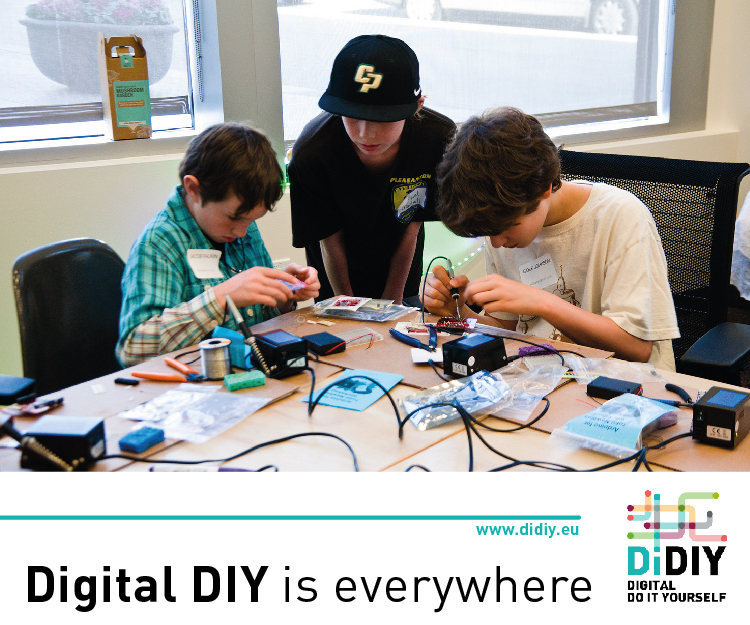After the DiDIY Project: future FKI work on Digital DIY
 DiDIY (Digital Do-It-Yourself) is a complex sociocultural phenomenon, still at its beginnings and rapidly evolving. FKI and the other members of the DiDIY Consortium studied DiDIY in depth from 2015 to 2017, in the context of the Horizon2020 DiDIY Project. During that research, FKI looked at DiDIY mainly, but not exclusively, from the points of views summarized in these documents:
DiDIY (Digital Do-It-Yourself) is a complex sociocultural phenomenon, still at its beginnings and rapidly evolving. FKI and the other members of the DiDIY Consortium studied DiDIY in depth from 2015 to 2017, in the context of the Horizon2020 DiDIY Project. During that research, FKI looked at DiDIY mainly, but not exclusively, from the points of views summarized in these documents:
- DiDIY support and awareness in Europe
- DiDIY dominant legal challenges and solutions practised
- Legal practices of DiDIY hardware technologies
- DiDIY for Self-Sustainability of Rural Areas
- DiDIY Risks, synergies and education
- DiDIY Guidance e-manual
While that project formally ended in June 2017, all the partners of the DiDIY Consortium actively continue to research and promote DiDIY. For its part, FKI is working on studies, courses and local projects like Comunificadora, that have the following goals and motivations (taken from the DiDIY Manifesto that we officially invite everybody to sign):
[In the interests of economy, business and entrepreneurship:]
- To value the Digital DIY spirit of innovation, invention and entrepreneurship, and support grassroots and entrepreneurial initiatives.
- To support new business models based in sharing of knowledge, collaborative making and circular economy.
- To support education, learning and continuing professional development which will enhance collaborative and entrepreneurial traits in employees.
[In the interests of well-being and sustainability:]
- To enable more people to experience the enhanced well-being reported by makers, associated with close social interaction, creative problem-solving and greater creative confidence.
- To embrace and enhance the role of Digital DIY in realising sustainable futures.
[In the interests of our rights and responsibilities:]
- To use open standards to drive innovation, and ensure that regulations on product safety and intellectual property do not stifle creativity.
- To make responsible use of the power of Digital DIY, respecting other citizens rights, increasing meaningful participation, and contributing to positive societal development.